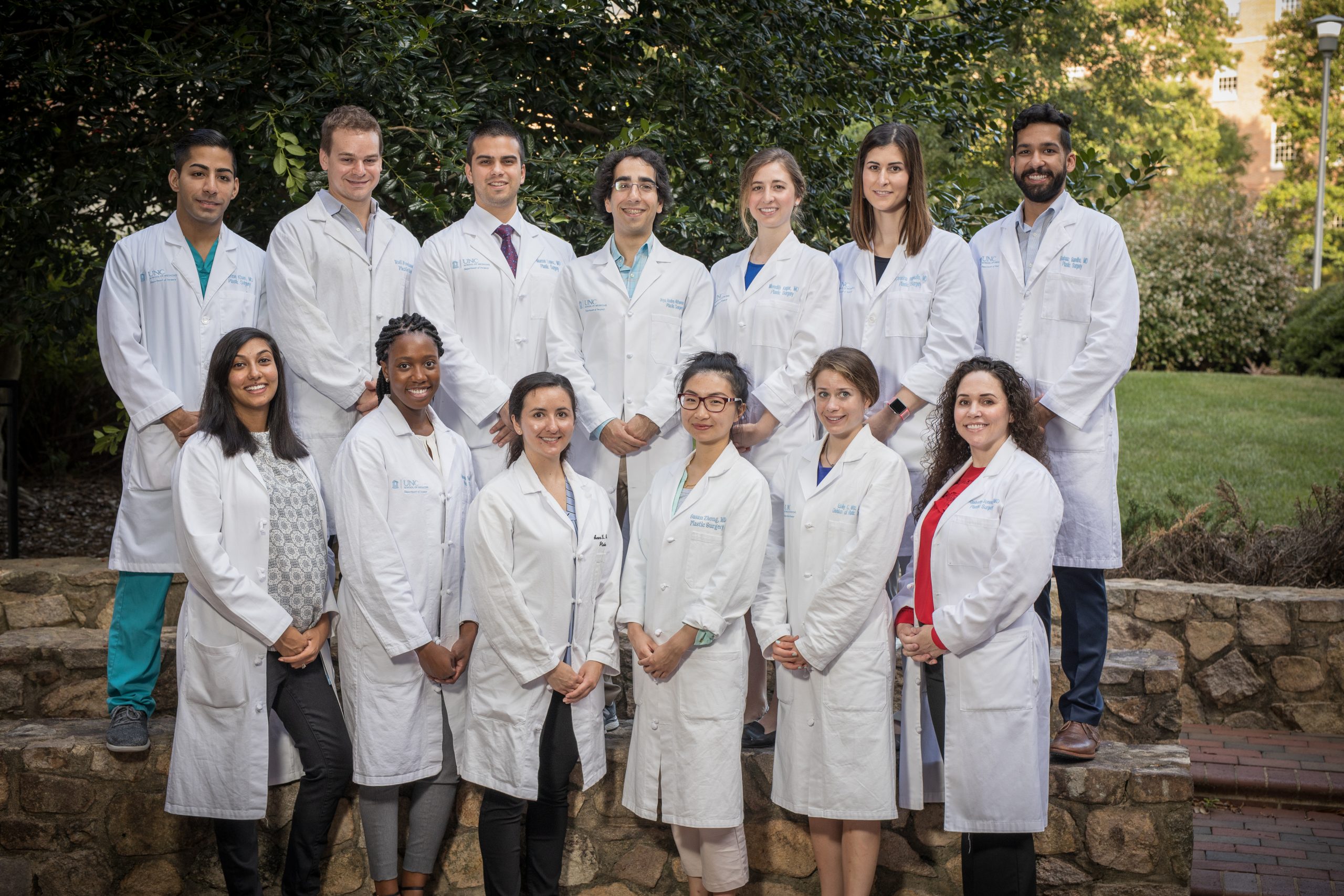The University of North Carolina School of Medicine’s Division of Plastic Surgery is proud to offer a fully accredited Integrated residency program in Plastic and Reconstructive Surgery. In 2014, the program transitioned from a traditional, independent three-year program, to the current integrated six-year program. The residency program is ACGME accredited, accepting two residents each year. The Program Director extends interviews to medical students eligible for participation in ERAS and the NRMP Match. The overall objective of the training program is to provide each resident with a strong foundation in surgery and comprehensive training in all aspects of plastic surgery. During the first two years of training, experience is gained in general surgery and its subspecialties as well as on the plastic surgery service. The last four years of training are dedicated to providing well rounded experience in plastic surgery including rotations in reconstructive and microsurgery, general plastic surgery, aesthetic, hand, and craniofacial and pediatric plastic surgery.
Becoming a Plastic Surgeon
Each rotation has its own patient mix and complements each other. Throughout training, residents have a full and complementary experience in both academic and private practice environments, as well as opportunities in clinical and basic science research.
Weekly didactic conferences include Selected Readings Conference, where all the major areas of Plastic Surgery are discussed in a one-year cycle, and Case Conference where the residents present actual surgical cases of interest with a review of the literature and possible treatment options. Monthly conferences include Journal Club, in which four to six articles are selected, distributed and then discussed; Indications Conference, and Morbidity/Mortality Conference. The series of rounds and conferences have been developed to assure residents in the program are educated in the broad scope of Plastic Surgery.
There are four weekly interdisciplinary conferences that residents can attend to expand their clinical knowledge base regarding specific areas. These conferences include Orthopedic Hand Conference, Craniofacial Team Conference, Breast Conference, and Melanoma Conference.
The Division supports participation in basic and clinical research throughout residency. Residents are also encouraged to attend at least one national or regional meeting per year; residents presenting papers at pre-approved meetings will have all reasonable expenses covered by the Division. Time away at these educational conferences does not count toward that resident’s allocation of vacation time.
Residents who have completed their training in Plastic and Reconstructive Surgery at the University of North Carolina have pursued careers in both academic and private practice settings. The training in Plastic Surgery at UNC is comprehensive and allows the resident to pursue any career opportunity he or she desires. Residents have not found it essential to take post-residency fellowships, although some have chosen to do so to gain advanced expertise in a subspecialty area and have successfully matched at highly regarded and competitive post-residency fellowships. Career goals are discussed with each resident on a regular basis to assure that they are given the assistance required to meet their long-term goals.

Simulation Labs and Hands-on Workshops Throughout the Year
Educational components: check out photos and descriptions of our simulation labs and workshops.
Applying For Residency at UNC
The Division of Plastic Surgery at the University of North Carolina at Chapel Hill is a participating member of the National Resident Matching Program and accepts applications only through the ERAS system. To apply:
- Use the universal application form available through the Electronic Residency Application Service of the Association of American Medical Colleges.
- Register with the National Residency Matching Program at www.nrmp.org .
- Read more about our application process here .
